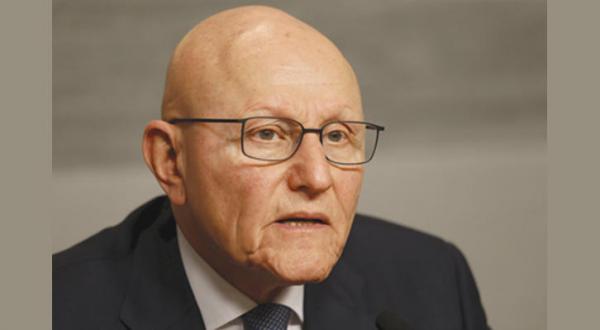The Lebanese Prime Minister Tammam Salam admitted that Lebanon committed an error and has wronged Arab Gulf countries and the Arabs. He also stressed that it would make amends by adhering to Arab consensus in all forthcoming matters.
In an interview with Asharq Al-Awsat, Salam criticised the roles of Iran and Hezbollah and their interference in some Arab countries, and added that Arab countries have the right to confront this expansion.
He believed that the only solution to confront Hezbollah’s influence is the country’s refusal to be a platform for the organisation to fight Arab countries. He added “With regards to the security and stability of the Arab Gulf states and Arab countries in general, we have no uncertainty” indicating his support for actions taken by GCC authorities against any Lebanese person “who insults his country of residence or compromises its security”.
Salam reiterated his demand to the Secretary General of Hezbollah Hassan Nasrallah that the organisation “does not attack or oppose the Gulf States and our friends in Saudi Arabia specifically”. He continued “We do not ever want Lebanon to be the spearhead of harm in these countries and it is obvious that we do not accept that Lebanon becomes a platform to fight or form a state of hostility against the Arab Gulf countries”.
Commenting on the September 11 documents published by Asharq Al-Awsat that quotes the US judiciary and reveals links between Iran and Hezbollah and the perpetrators of the attacks, he said “If the organisation justified its intervention in Syria by saying that it is fighting terrorists, what role would justify its intervention in other countries?”.
Salaam said the circumstances of his government are not “secure” and thereby justified its inability to confront the organisation. He added that his government is “a coalition government and we are keen that it does not collapse because a collapse of government would mean a collapse of Lebanon in light of the presidential vacuum and parliament’s paralysis”.
Salam revealed that he offered his resignation once after he felt that he had reached an impasse and added that he brandished this offer of resignation five times in order to pass some decisions. He continued by saying that “the government’s situation is not safe or secure and is part of the troubled political situation in the country. The fact that it is a coalition government makes the balance of political forces control much of its performance. This is where my concern that this government should not collapse springs from as the collapse of the government would pave the way for the collapse of the country. The option to resign still exists every time I find that staying is no longer useful”.

